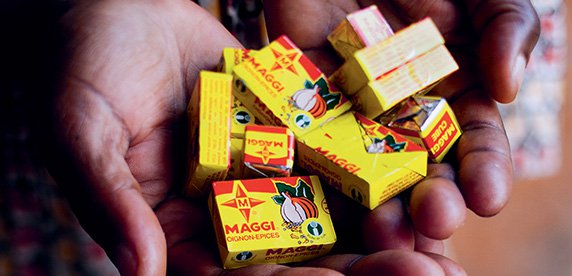Nestlé Australia highlights support for the UN Sustainable Development Goals
Nestlé Australia today highlighted its commitment to the United Nations’ Sustainable Development Goals (SDGs), with CEO Trevor Clayton joining with other Australian business leaders to sign a CEO Statement of Support.
In signing the Statement of Support, Mr Clayton highlighted the role Nestlé continues to play in supporting goals such as achieving food security, promoting sustainable agriculture and ensuring sustainable management of water.
“At Nestlé, we have long held the belief that for our business to prosper in the longer term, it must deliver value to both our shareholders, and the communities in which we operate,” Mr Clayton said.
“Our growth over the past 150 years has been based on having a positive impact on society; we are therefore fully committed towards supporting the principles of the United Nations Global Compact and the Sustainable Development Goals,” he said.
The SDGs – agreed by all 193 United Nations member states and applicable to all countries – are a global agenda laying out a roadmap to end extreme poverty, fight inequality and injustice and protect the planet. The SDGs, comprising 17 Sustainable Development Goals (SDGs) and 169 targets to be met by 2030, will guide actions taken by governments, industry, NGOs and other stakeholders to promote sustainable global development. Nestlé played an active role in discussing how business can support the SDGs, as part of the UN’s broadest ever consultation exercise.
The CEO Statement of Support was launched at the inaugural Australian SDGs Summit, which brought together bring Australian leaders from government, business, civil society, academia and youth organisations to advance Australian action to achieve the SDGs.
Creating Shared Value, whereby actions to create shareholder value must also create value for society, is Nestlé’s way of doing business, and we have made 38 public commitments that outline the actions we are taking to tackle many of the global challenges that the SDGs are designed to address.
For example, Nestlé is contributing to achieving the SDG goal of ending hunger, achieving food security, improving nutrition and promoting more sustainable agriculture. We’ve pledged to introduce micronutrient fortified foods, roll out our Rural Development Framework to understand farmers’ needs, implement sustainable sourcing and preserve natural capital. Nestle has also made commitments that will help support SDGs on water stewardship, sustainable consumption and production and the need for action on climate change.
However, the SDGs address long-term global challenges that no one actor can address alone, and we are committed to dialogue, engagement and partnerships with all stakeholders to further the global development agenda.
First in food: Nestlé leads industry in Dow Jones Sustainability Index
A biogas facility that fuels a factory with green energy and helps farmers. Just one example of kind of the work that has helped Nestlé become food industry No.1 in the 2016 Dow Jones Sustainability Index (DJSI).
The DJSI is a globally recognised independent benchmark that measures the performance of the largest 2,500 global companies across three dimensions: Economic, Environmental and Social.
With an overall score of 92 out of 100 (pdf, 570 Kb), Nestlé received industry-best scores in all three dimensions. The index praised the company for the ‘outstanding steps’ it has taken to embed human rights into supplier management policies, as well as its industry leadership in health and nutrition.
Awarding Nestlé an Environmental score of 100, the index recognised the company’s commitment to ensuring that its products and process are as environmentally and socially friendly as possible.
For example, in Switzerland Nestlé recently partnered with local farmers to open the country’s largest agriculture biogas plant, which uses manure from cattle to generate green energy for its Henniez bottled water factory and the Swiss power grid.
In return, the farmers receive a more environmentally friendly manure, and Nestlé also helps them care for the local environment. Such work was recognised in the DJSI Social dimension, where the company scored 98 out of 100 for Corporate Citizenship/Philanthropy.
Read more on the Dow Jones Sustainability Index website
